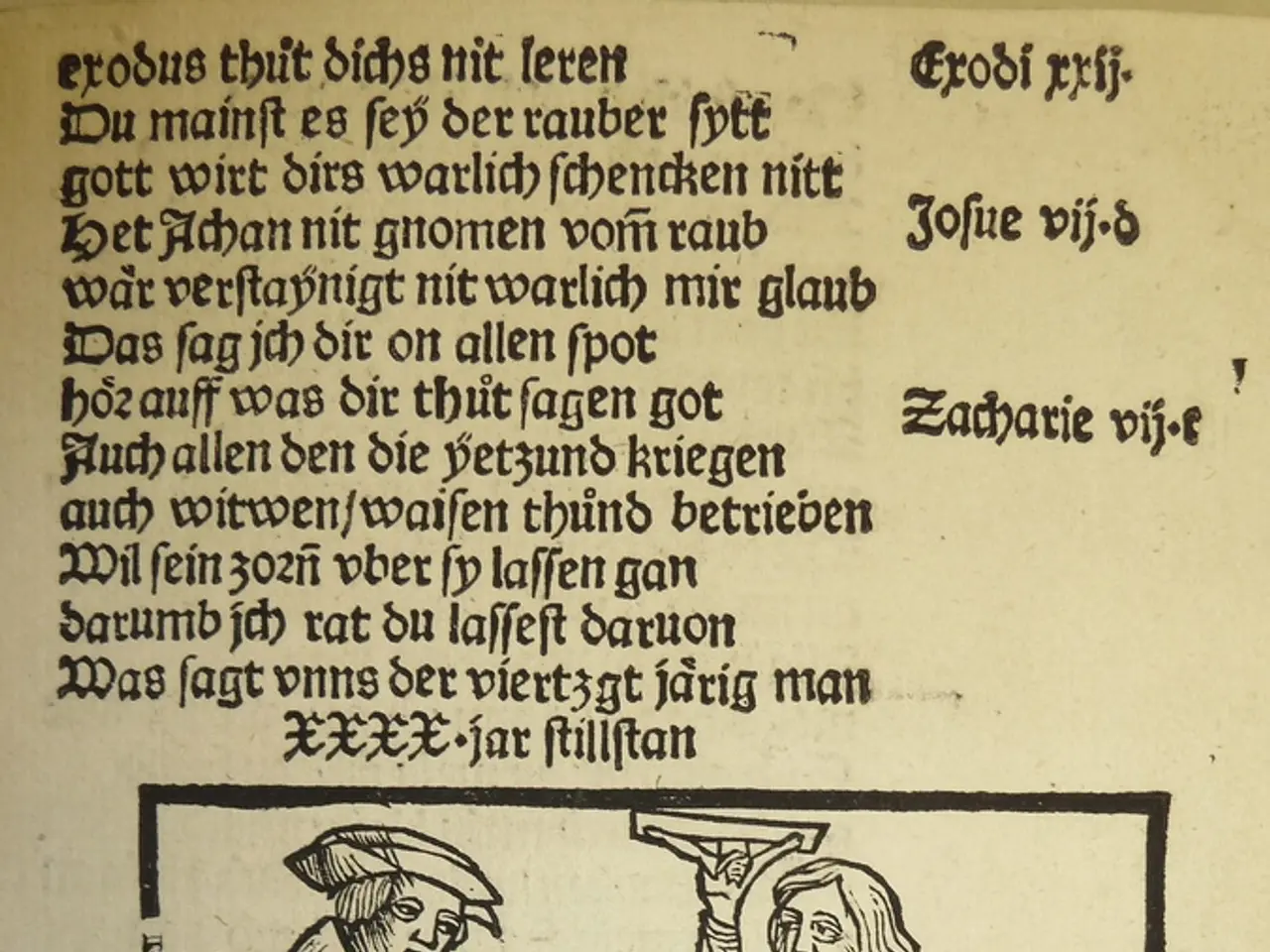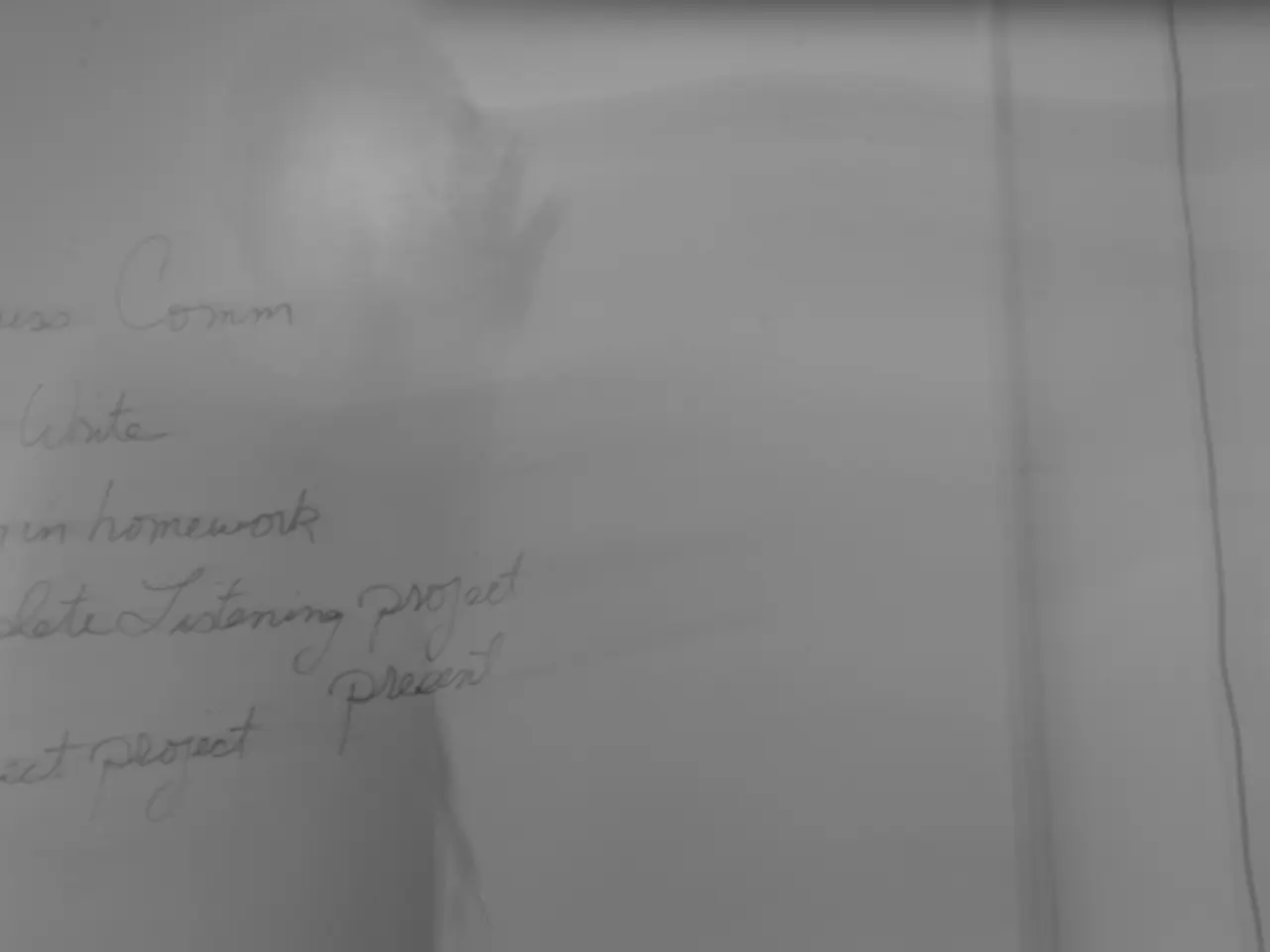Lack of Gender Representation in Federal Departments or Ministries
In a move aimed at maintaining legal certainty and promoting traditional orthographic rules, the federal government in Germany has officially prohibited the use of gender-inclusive language with special characters (such as asterisks or the Binnen-I) in federal government communications. This ban affects federal ministries, including the Chancellery and the Ministry of Culture, and applies to all official documents and communications.
The spokesperson for the Digital Ministry in Berlin confirmed this policy during a government press conference, emphasising the need for grammatically correct and clear language. The Ministry of Culture’s State Minister, Wolfram Weimer, also stated that forced gendering does not reflect majority usage and deepens societal division.
In federal government institutions, employees are required to avoid gender-neutral writing styles using typographic markers and instead use the classical masculine generic or gender-differentiated standard forms. However, individuals retain the private freedom to express themselves with gender-inclusive language.
Regarding schools and public administration, while specific nationwide guidelines are less clear, it is likely that official communication also discourages special characters for gender-inclusive language. In education, debates continue about gendered language, but no unified official orthographic ruling equivalent to the federal government ban has been highlighted.
The overall development of the use of special characters in words is still being monitored. The new guidelines from the Council for German Orthography include a section on special characters in words, used by advocates of gender-sensitive language. However, the new guidelines do not specify whether the Chancellery has to adapt its language usage to the new guidelines.
This ban on gender-inclusive typographic forms reflects ongoing societal debates around gender-neutral language in German, a grammatical gender system where masculine forms have traditionally been used as generics for mixed or unknown gender groups. While the ban has sparked heated public debate, it is clear that the federal government is committed to adhering to traditional orthographic rules in its official communications.
References:
[1] The Local, 2025. German government bans gender-neutral language in official communications. [online] Available at: https://www.thelocal.de/20250801/german-government-bans-gender-neutral-language-in-official-communications
[2] Deutsche Welle, 2021. Germany's debate over gender-neutral language. [online] Available at: https://www.dw.com/en/germanys-debate-over-gender-neutral-language/a-59065070
[3] taz, 2025. German government bans gender-neutral language in official communications. [online] Available at: https://www.taz.de/!5889448/
[4] The Guardian, 2021. Germany's language of inclusion: Why the debate over gender-neutral German is heating up. [online] Available at: https://www.theguardian.com/world/2021/mar/22/germanys-language-of-inclusion-why-the-debate-over-gender-neutral-german-is-heating-up
[5] Deutsche Welle, 2025. German government clarifies gender-neutral language ban in official communications. [online] Available at: https://www.dw.com/en/german-government-clarifies-gender-neutral-language-ban-in-official-communications/a-5889448
- The ongoing discussions in policy-and-legislation regarding gender-neutral language in the federal government's communication highlight the importance of traditional orthographic rules and political stances.
- In response to the ban on gender-inclusive typographic forms, the Ministry of Culture released a statement emphasizing the importance of grammatically correct language in general-news communication, as part of the broader societal debates around gender-neutral language in German.







